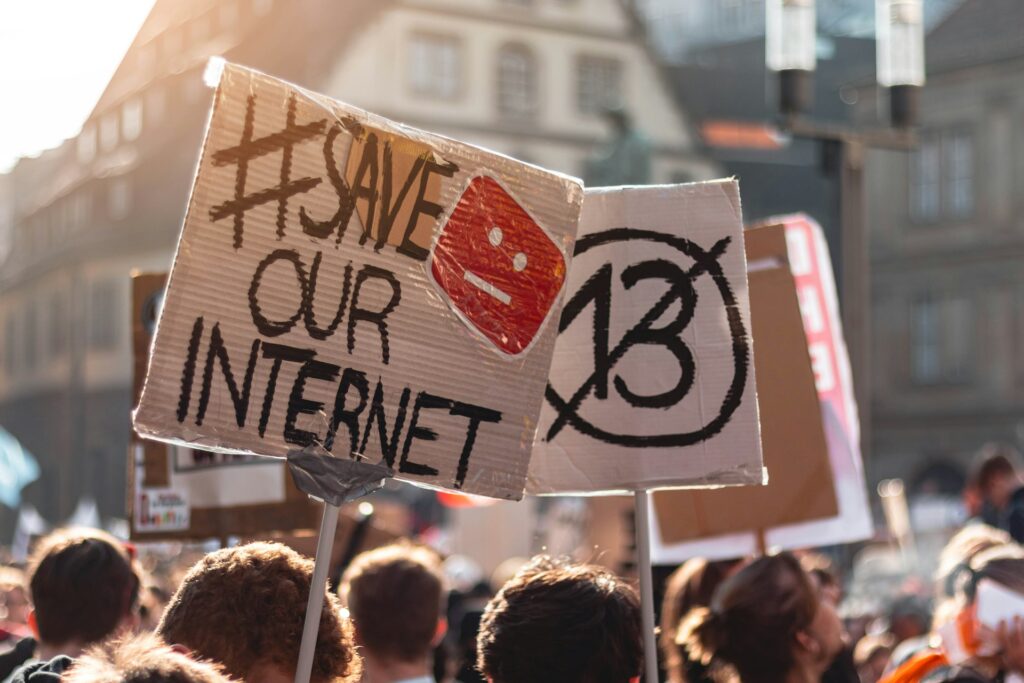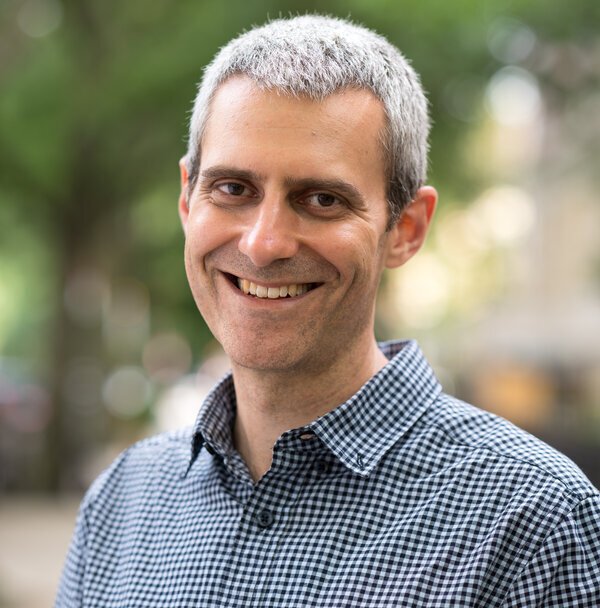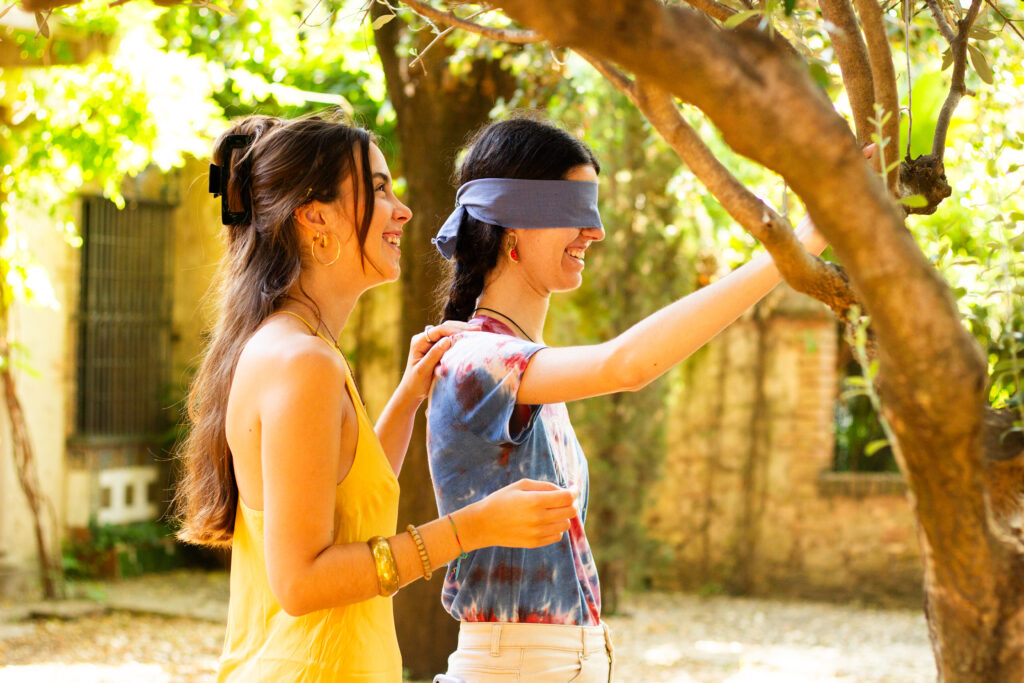How can the largest industrial union in Europe better engage its members in an increasingly digital world? For Falko Blumenthal, Political Secretary at IG Metall, the answer began to emerge during the ‘Digital Innovation for Civic Engagement Projects’ Tallinn Summer School co-hosted by Citizen OS and Tallinn University. We spoke with him about how our training programme helped spark a shift—moving from traditional participation models to a more co-creative, inclusive culture across the union and beyond.

Falko Blumenthal, Political Secretary at IG Metall. Photo: Nicki K Weber.
What prompted you to attend this programme?
Falko: My background is originally in youth work and political groups. And I realised that the traditional culture of these groups to meet on, say, every second Wednesday at 7pm, is just not possible anymore in a digitalised landscape. If I have people from Hamburg who want to participate, and the group meets in Munich, for example, then they’re cut out of the conversation. And people who have kids have many valuable insights to offer, but they can rarely attend a meeting at 7pm.
So the need was for asymmetric communications and remote interaction. We needed better ways to engage people who otherwise couldn’t be there.
What changed for you after the training? Did you approach your members differently?
Falko: Yes. Firstly, online discussions and online surveys were a very separate process for us previously. Of course, forums and surveys are nothing new, but thanks to Citizen OS we found the revolutionary idea of combining the two!
Through qualitative feedback from discussions, we learned what kind of language, what kind of topics, what kind of direction people needed. So we could transform the way we ask questions. By using observations from the discussions, we could make sure our survey questions would resonate with people.
The most important change? The realisation that co-creation is not only a method—it’s a tool of organisational change. It changes how hierarchy and authority work. And it showed us that you can have unfinished thoughts, debate them in a public setting, and co-develop projects that don’t have to be perfect from the start.
Did the training influence the broader culture of your organisation?
Falko: Yes, absolutely. Within IG Metall here in Munich, we had a cultural change. We realised that we no longer need to present the ‘finished product’ for an initiative or campaign idea—but we can develop ideas more in the open, and allow feedback across groups. This has meant that our board, its voters, our delegates and the staff of IG Metall have all been able to talk more openly with each other.
We’ve also been able to engage people across varying personal schedules through digital methods—whether it’s the industrial worker working from 6am till 2pm, the IT guy working from 10:30am till 8pm, or the part-time engineer taking care of their kids. They can all now interact in a digital environment, asynchronously.
Can you give an example of your learnings applied in practice?
Falko: One thing that springs to mind is my work with a large technology company in Germany following this training. I’m responsible for consulting the Works Council there—they represent about 6,000 employees. Traditionally, during elections, you just post up a picture of yourself looking your best, looking responsible, and hope people vote for you!
When they came to me asking for help with their election posters, I said: “Let’s meet and talk about it first. If you were in the consumer position of your own campaign, what would you want?”. I showed them Citizen OS and some American organising strategies. The ideas I’d learned on the course—of engaging with people, developing ideas together, and doing it digitally—those really took off.
What was the outcome?
In the upcoming elections, they added a QR code alongside their photos. They invited people to offline and online meetings, and held forum discussions, asking: “What do you need, guys? We are here, we want to work for you, but we want to work according to your needs—not just our assumptions.”
This was a real shift in approach and created a more direct democratic system in how the Works Council thinks and works. And as a result, there was a change in the composition of the Council. The old president, for example—who was very authoritarian in her role—was voted out. The incoming president was much more of a facilitator. He doesn’t think he needs to be in every picture or have the answer to every question. He sees himself more as a ‘shepherd of the discourse’.
So there was a very tangible political change there—a real democratic shift.
What kind of long-term change has your new approach led to?
I’ve noticed that dealing with issues transparently in open groups will change how the organisation works. And seeing that you’re not alone in your debate is another benefit of digital tools. When you open the Citizen OS platform, for example, you see people talking about ecological transformation, the arts, youth activity—so you see that your topic isn’t the only one in the world.
And we see now that we’re not alone in figuring out our methods either. Nowadays, we invite people from youth groups, NGOs, and the government—asking, “How do you get people active? How do you help them stay active? How do you hand over responsibility when someone steps back? How to make a project live beyond just one generation of engaged people?”, so we can learn from each other.
What was the most important change to come out of the training?
The most important change? The realisation that co-creation is not only a method—it’s a tool of organisational change. It changes how hierarchy and authority work. And it showed us that you can have unfinished thoughts, debate them in a public setting, and co-develop projects that don’t have to be perfect from the start.
That was really new for people we work with in positions of institutional power. But thanks to this new approach, they’ve opened up, let their guard down, and learned that their constituents don’t need a ‘propaganda-ready product’ handed to them—they actually want to co-create it with you.



